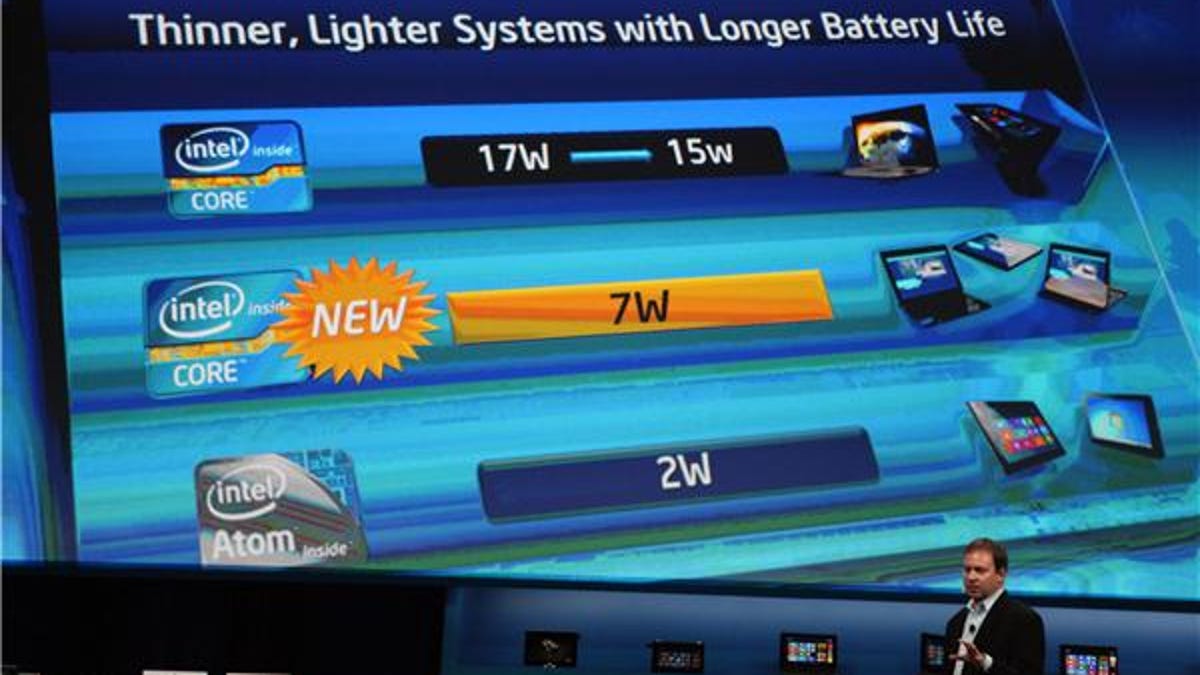Intel gets serious about power-sipping silicon
Chip giant demonstrates at CES that it is fighting back with a vengeance at ARM chip companies that want to keep it out of the small device market.

LAS VEGAS--Feeling the heat from tablet and smartphone rivals, Intel demonstrated today at CES today that it is more concerned about low power than high performance.
Kirk Skaugen, GM of the Intel PC Client Group, made a surprising disclosure when he said the current third-generation "Ivy Bridge" processor will now run at a rated 7 watts and will appear soon in super-skinny tablet-laptop hybrids from Acer and Lenovo.
Power efficiency like that wasn't supposed to happen until the upcoming fourth-generation "Haswell" processor based on a new micro-architecture.
To put that into perspective, mainstream Intel mobile chips in the past were typically rated at a toasty 35 watts. That kind of Intel chip was only suitable for thick-and-heavy laptops.
And it's critical for Intel to move to more battery-friendly designs fast. ARM chip rivals like Nvidia, Qualcomm, and Apple are making their inherently power-frugal chips increasingly fast, as demonstrated by Nvidia when it announced the quad-core Tegra 4 on Sunday.
To attack the ARM camp, Intel has a pincher strategy. As it makes Core series chips more efficient, it will make its Atom chip -- targeted at tablet and smartphones -- more powerful.
Intel's Bay Trail Atom chip wil have twice the performance of the current Atom chip and sport four cores and a new graphics chip, Intel's Mike Bell said today.

